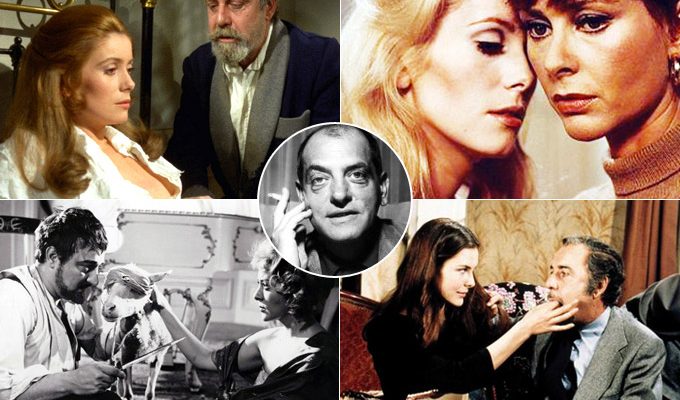 “Viridiana” (1961)
“Viridiana” (1961)
Almost 30 years after “Land Without Bread,” Bunuel returned from his Spanish exile with “Viridiana” and it almost made him persona non grata within his homeland all over again. Scandalizing the Church and denounced by the Vatican, the picture was censored by the Spanish government on the grounds of blasphemy and obscenity due to its risqué sexual nature and a “Last Supper” homage depicting ungrateful beggars dining in the same pose as Da Vinci’s famous painting. Commencing with Bunuel’s characteristic perverted sexual predilections, the picture begins with a young nun Viridiana (Silvia Pinal, in their first collaboration), who days before taking her final vows in the convent, goes to visit her wealthy and aging uncle who has provided for her all these years (Fernando Rey, the villain in “The French Connection,” in the first of four key collaborations with Bunuel). Struck by the resemblance to his former wife, the old man soon becomes fixated and then completely obsessed with his niece; begging her to marry him and going as far as to convince her he has raped her, so she will assume the convent will never have her, as she has been tarnished for life. Before the narrative can become Bunuel’s distinctive riff on lecherous old men bewitched with beauty, the uncle dies and the picture seemingly switches gears. Viridana is so deeply disturbed she forgoes her duties to the church and devotes her life to feeding and educating a needy group of vagabonds and paupers in the house that has been left to her and her cousin. But it becomes clear the theme of spoiled idealism remains the same when the beggars show their true colors as vile degenerates and thieves. Another more conventional narrative compared to some of his other works (the filmmaker would vacillate between the two types of filmmaking for the early part of his career), “Viridana,” isn’t as wicked and naughty as some of Bunuel’s more slyly arch films, but the picture is still strikingly audacious. Considered by some to be his masterpiece, the film won the Palme d’Or at the 1961 Cannes Film Festival – the only film of his career to win the prestigious award.
 “The Exterminating Angel” (1962)
“The Exterminating Angel” (1962)
Perhaps a close as Bunuel ever came to making a (very satirical) horror film, “The Exterminating Angel” would see the filmmaker veer toward some of his surrealist tendencies concurrent with his gleeful fondness for sending up and putting the bourgeois through their paces. A posh jacket and tie dinner party filled with the upper crust is taking place in an aristocratic mansion when suddenly the servants and help feel the urge to abandon their posts and exit immediately. The dinner guests have little time to be outraged by their discovery when they too soon feel an overwhelming sensation: they cannot leave the party. Inexplicably trapped in some kind of mental psychosis, there are neither locks nor barred windows preventing them from leaving, but all the dinner guests remain bizarrely incarcerated. When they do muster the strength and courage to unify and leave, one by one they fall into a type of hopeless despair. Worse, left on their own, a “Lord Of The Flies”-like scenario begins to emerge with the guests turning on one another with blame, threats of violence, paranoia and duplicity. It’s all very wickedly arch and archetypal, and Bunuel can practically be heard howling with laughter at their plight. Merrily malevolent, as the guests of “The Exterminating Angel” devolve into a courteous savagery the film gets even weirder involving sheep, witchcraft, a bear and a creepy disembodied hand. Black humor is an essential tool in the Bunuel arsenal, but it’s perhaps never as quite as deliciously devilish as it is in this witty and scathing censure of the affluent and privileged.

